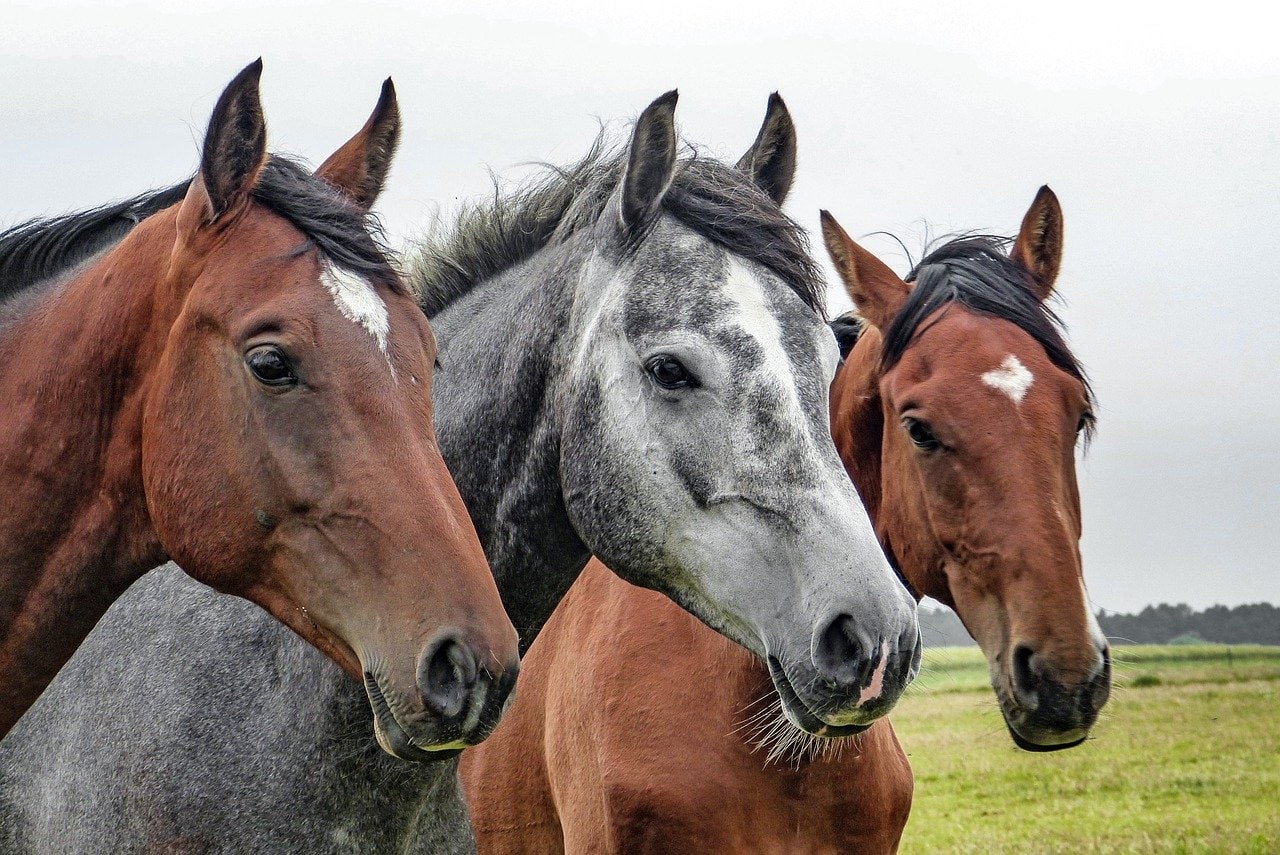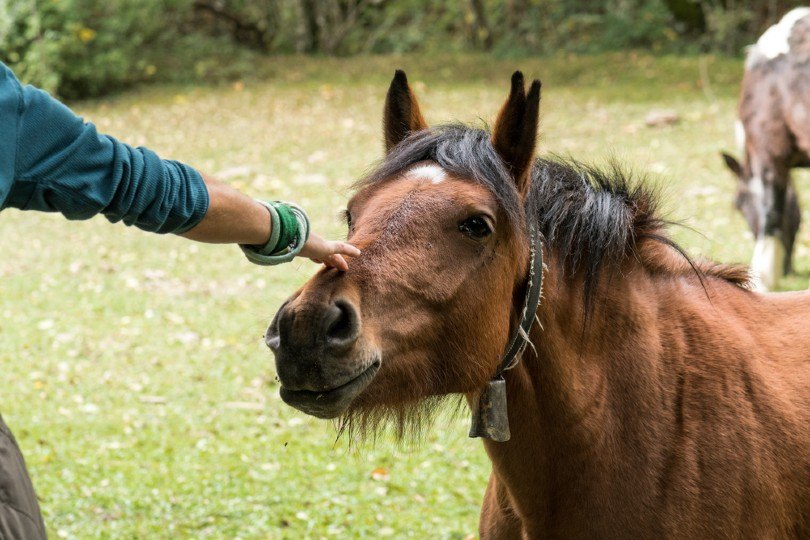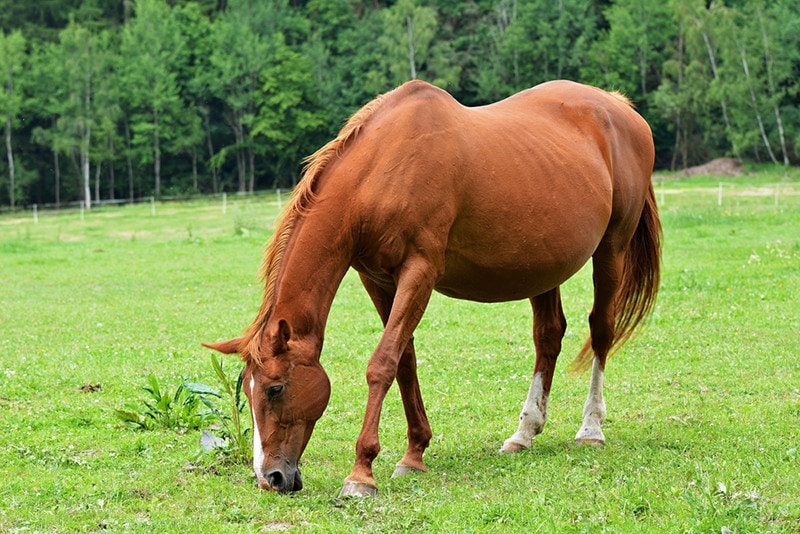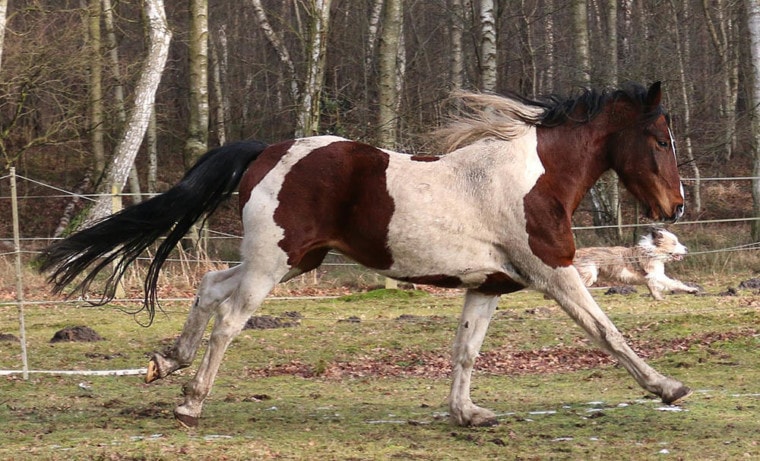
Because horses are such large and athletic creatures, they aren’t particularly low on the food chain, despite having very few defense mechanisms. Although there certainly are other animals that can attack and kill horses, you have much less to worry about when it comes to a horse being attacked in comparison to other farm animals.
If you are interested in learning about eight predators that pose threats to horses, read on. This article explains the top five animals that pose a threat to horses, as well as three other animals you might want to keep an eye out for.
Top 8 Animals That Could Attack Horses
Mountain lions, wolves, bears, alligators, and boars are the top five animals that are most likely to attack and kill horses. If you know you have one or more of these predators in your area, make sure to watch your horse carefully because these animals can attack horses and often lead to fatal killings.
1. Mountain Lions and Cougars
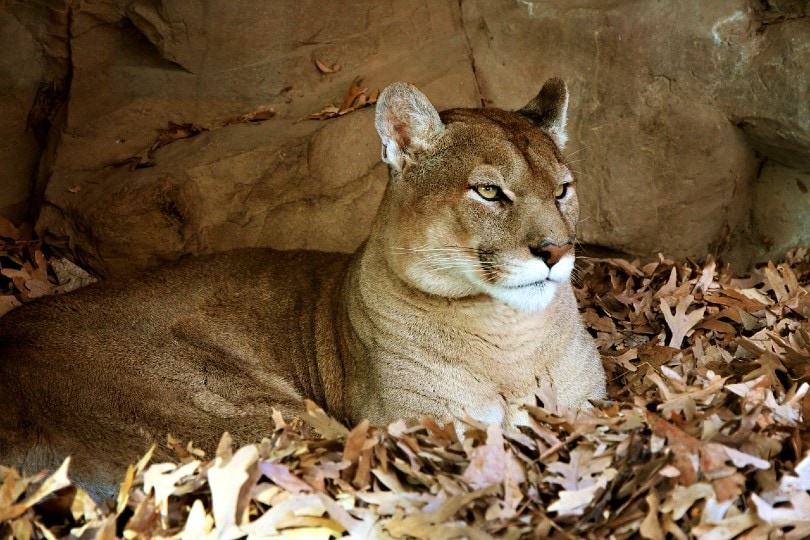
The mountain lion is one of the only natural predators of wild horses. Because of this fact, it’s no shock that domesticated horses can be caught and taken down by a mountain lion or cougar. Because mountain lions are stalking predators, they have taken down horses through the element of surprise, though they can run at great speeds too.
Mountain lions are a much smaller issue to domestic horses than wild horses. Most domestic horses generally do not live in the same territory as mountain lions. As a result, it is unlikely for many pet horses to be attacked by mountain lions, though it is not out of the question.
2. Wolves
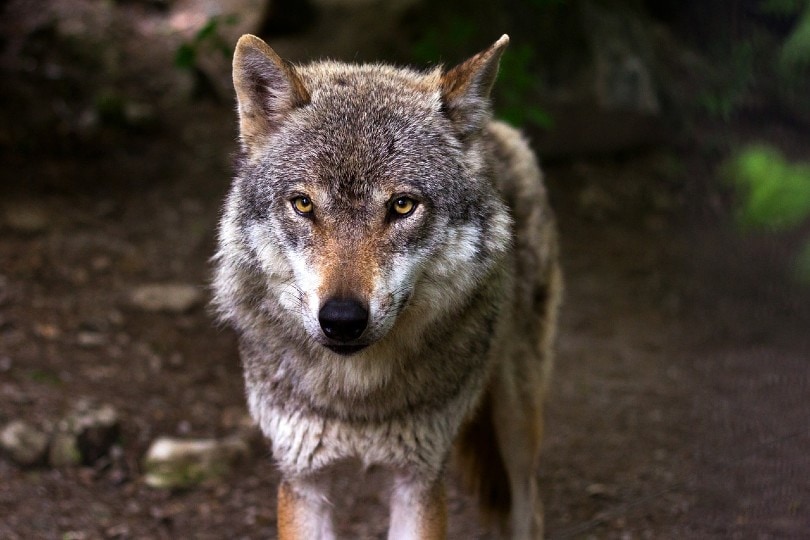
Wolves are considered some of the most dangerous animals on the planet. Not only are they athletic and fast, but they are intelligent and can track their prey without being detected. Because they are pack hunters, lone horses often stand no chance against a pack of hungry wolves.
In the United States, there isn’t much of a threat from wolves. Although the number of wolves has been increasing, there simply aren’t enough wild wolves to pose serious threats to most horses. If you live in an area where wolves are common, be wary for your horse.
3. Bears
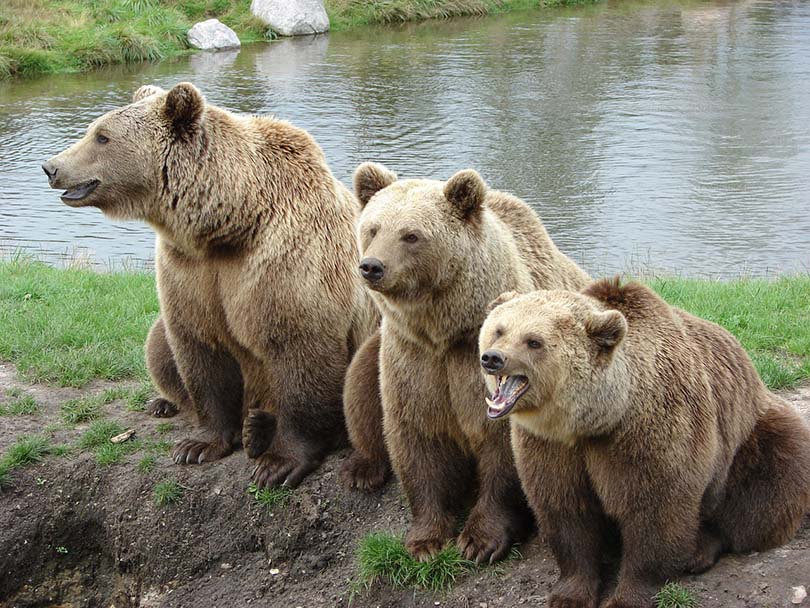
Because bears are so large and prevalent, they are one of the few animals that pose a real threat to your horse. Of the bear types, grizzly bears are the biggest threat to horses. Other bear types, such as black bears, very rarely attack horses and other large animals.
As for the grizzly bear, they will attack horses if they are short on other food sources. Typically, grizzlies will go after easier hunts, but a horse is not out of the question, especially if the horse is sickly, old, or injured. Grizzlies can outrun horses over short distances, but groups of healthy horses can easily outrun a grizzly in the long run.
4. Alligators
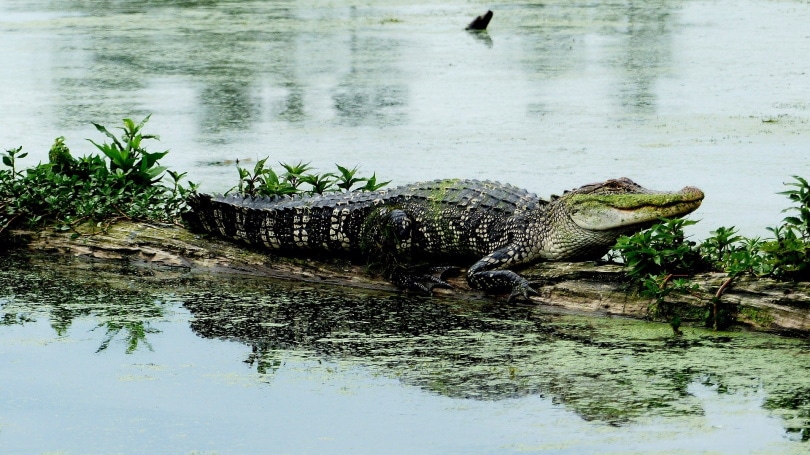
Despite being low to the ground, alligators can be serious predators to horses in areas where alligators are prevalent. For example, alligators are a major threat to horses in states like Florida. If you know that your area has alligators, you will need to take special precautions to try to keep your horse safe.
Because of how large and strong alligators are, they can take down a horse, especially if it is not suspecting an attack. Horses and alligators typically don’t inhabit the same areas, so the risk is quite low.
5. Boars
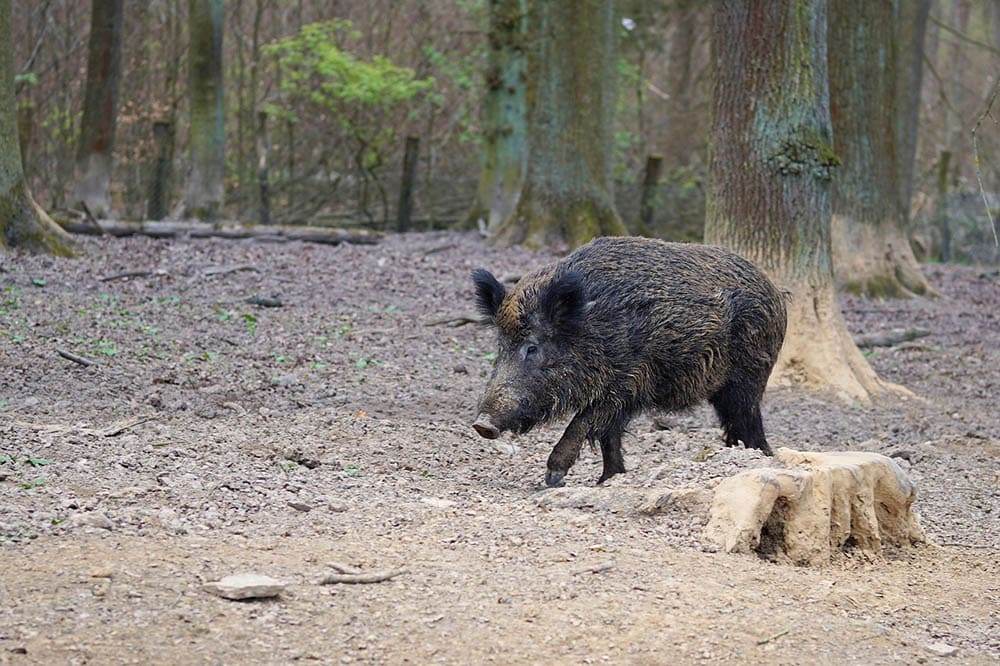
Boars are known for being aggressive and territorial creatures. Although it’s difficult for a boar to kill a healthy horse, the boar won’t think twice to try. In comparison to the animals mentioned above, boars are much less of a threat to horses, though they can do some serious damage if given the opportunity.
6. Coyotes
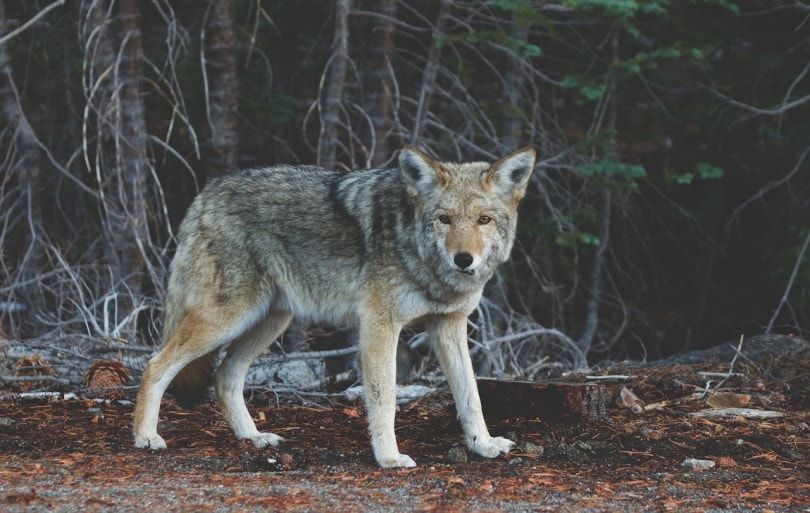
The five animals mentioned above aren’t the only animals that can attack horses, though they are the deadliest. Coyotes, aggressive dogs, and bees can also do some damage to horses, though they are notably less deadly due to their smaller size.
Coyotes are somewhat like wolves, but they are much smaller. Because of their smaller nature, coyotes don’t often attack horses. Even though they hunt in packs, coyotes are much more likely to hunt other animals on your property, such as small dogs, cats, or sheep.
There have been some reports about coyotes attacking horses. These reports are few, and they almost never lead to fatalities. Still, coyotes can injure a horse, especially if it is already sickly. You may need to put the horse down if the coyote injures it enough.
7. Aggressive Dogs
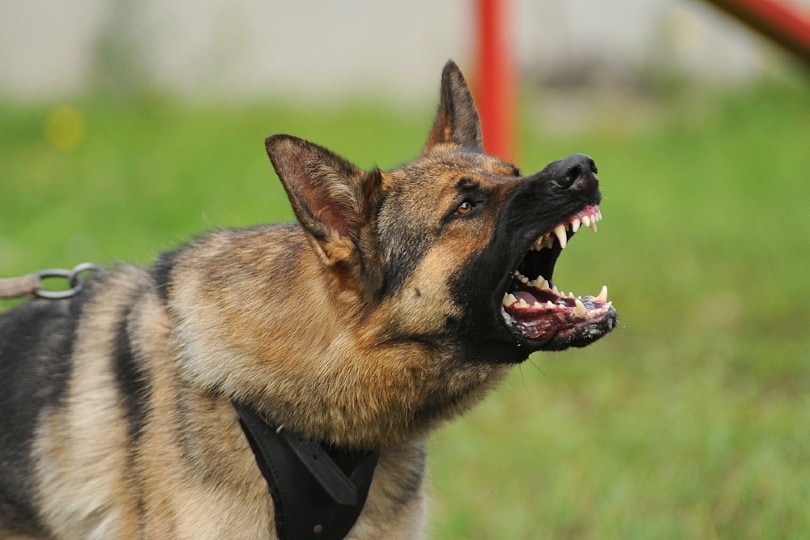
Much like coyotes, aggressive dogs can do some real damage on horses. Although it is uncommon for dogs to attack horses, it can happen, especially if the dog is already aggressive. Dogs can rarely kill a horse from the attack, but the horse may need to put down if the dog does any real damage.
8. Bees
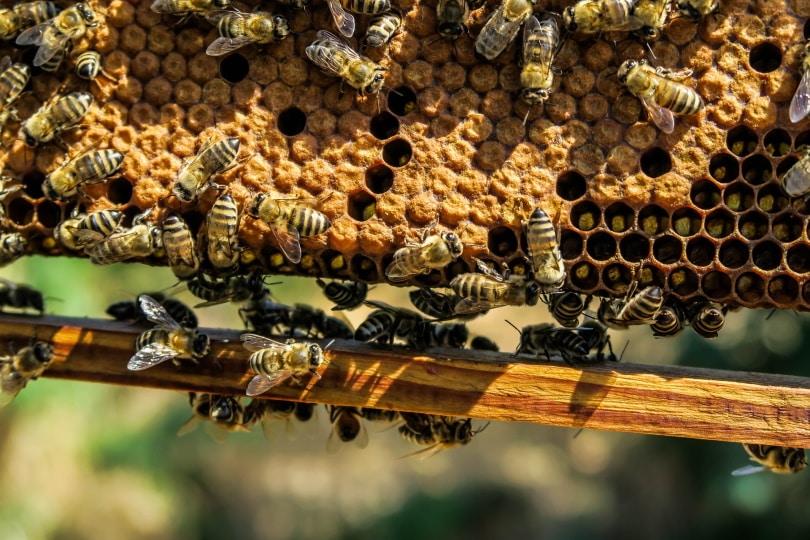
Bees are a bit different than all the other animals in this article. Bees are not going to outright kill your horse, but they can cause some serious damage if your horse gets into an entire hive and gets attacked by all the bees at once. Keeping your horse’s area free of beehives will prevent this issue.
What To Do If Your Horse Has Been Attacked
If your horse has been attacked, call your horse’s veterinarian immediately. Even if the attack seems to only have minor repercussions, call the vet to ensure there is no serious damage inflicted to your horse.
While you are waiting for your vet to arrive, keep your horse warm under blankets, especially if you notice any trembling. You can also clean out any wounds using warm water and a diluted antiseptic or saline. If you have any horse antibiotics or anti-inflammatories on hand, ask your vet if you can administer the medication before they arrive and follow their instructions.
If the horse is bleeding, try to control the bleeding by applying pressure to the area if the horse will let you. You can use a towel or a pressure bandage to accomplish this task.
Try remaining calm the best you can. If you are overly stressed out and worried, your horse will become more stressed than it already is. Additionally, don’t use any strong medications or disinfectants without your veterinarian’s explicit approval and instructions.

Final Thoughts
Because horses are so large, they don’t have many natural predators. Mountain lions, bears, and wolves are the top three natural predators to horses, but all three of these animals prefer easier game. Other predators can attack your horse as well, but the chances of these attacks occurring are even slimmer.
Even though it is unlikely for your horse to be attacked, it’s good to always have a game plan in case the worst happens. Make sure you have your horse’s vet on call so that you can get medical attention in case of an attack. Having a game plan is especially important if you live in an area where known predators often roam.
See also:
Featured Image Credit: Pixabay




